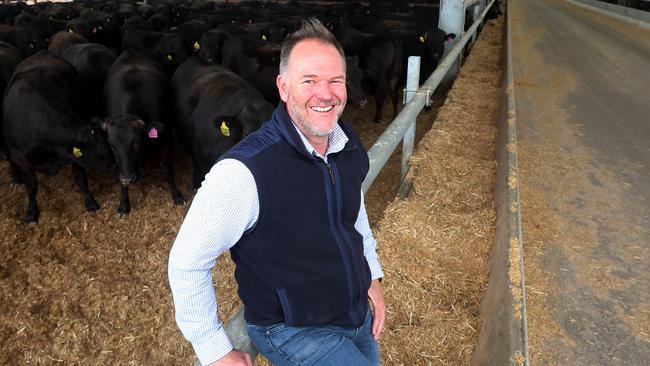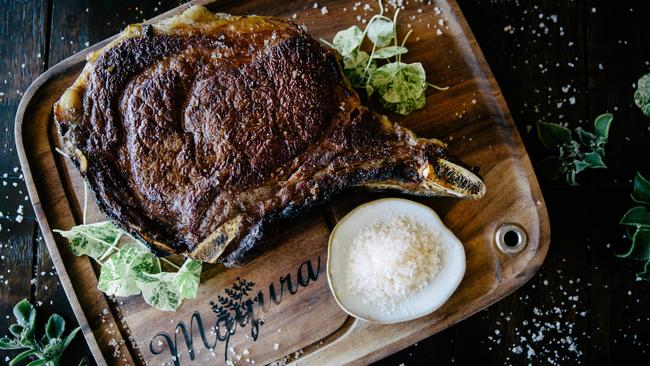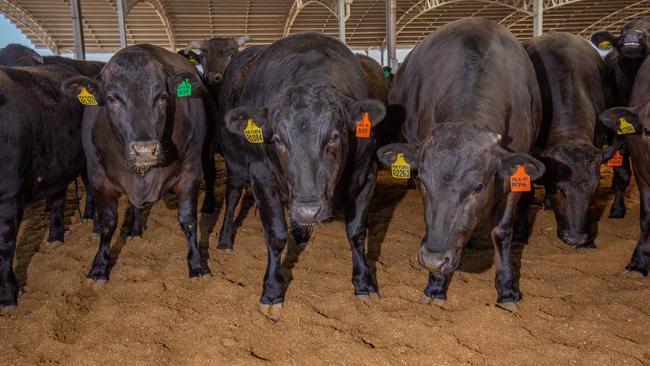Mayura Station’s Scott de Bruin looking to lift production as China demand heats up
Wagyu industry pioneer Scott de Bruin is looking to ramp up production at his Mayura Station as global demand for Australia’s premium beef continues to rise.

Wagyu industry pioneer Scott de Bruin is looking to ramp up production at his Mayura Station in the state’s south-east, as global demand for Australia’s highest quality beef continues to rise in the wake of the US-China trade war.
US beef exports to China have ground to a halt following the tit-for-tat tariffs between the world’s two largest economies, and Australia has emerged as a leading alternative to supply into the lucrative Chinese market.
Mayura Station has been exporting to China for about 12 years, and it remains the company’s biggest export market despite the country’s recent economic slowdown.
After meeting with customers last week in Shanghai, where he attended one of the world’s largest food trade shows – SIAL Shanghai – Mr de Bruin said China was looking to Australia to fill the gap caused by uncertainty over future beef trade from the US.
“They have looked to Australia and others – and Australia can only supply so much – to fill that void,” he said.
“That has really pushed prices up, and also pushed demand. In China, at the moment the economy is not going so well, but it’s still a massive consumer of product. So yes, I think there’s an opportunity there most definitely.”
Mr de Bruin has played a leading role in the growth of Australia’s wagyu industry since the late 1990s, when he welcomed one of the first-ever shipments of full-blood wagyu cattle into the country.

The shipment of 25 wagyu females from Japan in 1998 formed the foundation of the Mayura wagyu herd, which has grown to 12,500 cattle across a 4000ha property near Millicent.
It’s a vertically integrated operation, from research & development through to cropping, livestock production and processing at the G & K O’Connor abattoir in Pakenham, south east of Melbourne.
Mayura Station sells about 100 tonnes of full-blood wagyu beef a month, with about 35 per cent of sales going to overseas markets including China, Dubai and Southeast Asia.
Closer to home, its highly marbled and prized beef can be found in some of Adelaide’s top tier restaurants including Arkhé, Fugazzi and Magill Estate.
But it’s been a tough couple of years, with cost of living pressures weighing on global demand for luxury items, and drought conditions across the state’s south-east and western Victoria.
Mr de Bruin said that over the past year the drought had added an extra $1m to the costs of running the operation, due to the supplementary feed needed to sustain the herd.

“It’s had a huge effect ... most farmers can’t hold their cattle, they can’t afford to keep feeding them, so they’ll turn them off, sell them and then when it starts raining, they’ll go back and buy them back,” he said.
“But if you run a business like mine where you’re doing full-blood wagyu cattle I can’t sell them and buy them back. It’s taken me 27 years to build up this breeding herd, and if I tried to buy 4500 wagyu breeding cows in six months’ time, there’s just no way I could do it. I couldn’t find them.
“So what I have had to do is buy in a massive amount of feed to keep them going, and so my costs have skyrocketed.”
Despite the challenges, Mr de Bruin is looking to increase production by 50 per cent over the next five to six years, with planned investment in additional infrastructure, land and breeding herd expansion.
It comes as the wagyu industry attracts continued investment from major players including ASX-listed AACo, billionaire businesswoman Gina Rinehart and a number of private equity groups.
As one of the first movers in the industry, and in recognition of his contributions to its growth, Mr de Bruin was recently prized with an honorary life member award by the Australian Wagyu Association – a rare club of just nine of the industry’s most influential leaders. He described it as the “proudest moment of my career”.
“Wagyu has been the fastest growing cattle breed in Australia for probably the last 15 years, and one of the things that I did was really pioneer that it should be branded on the menu ... and really build that reputation,” he said.
“It means a lot to me and it’s a massive honour.”





To join the conversation, please log in. Don't have an account? Register
Join the conversation, you are commenting as Logout